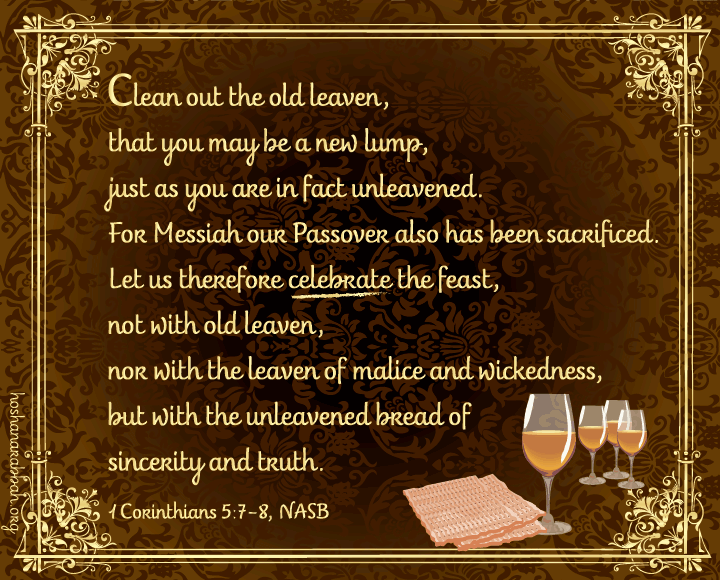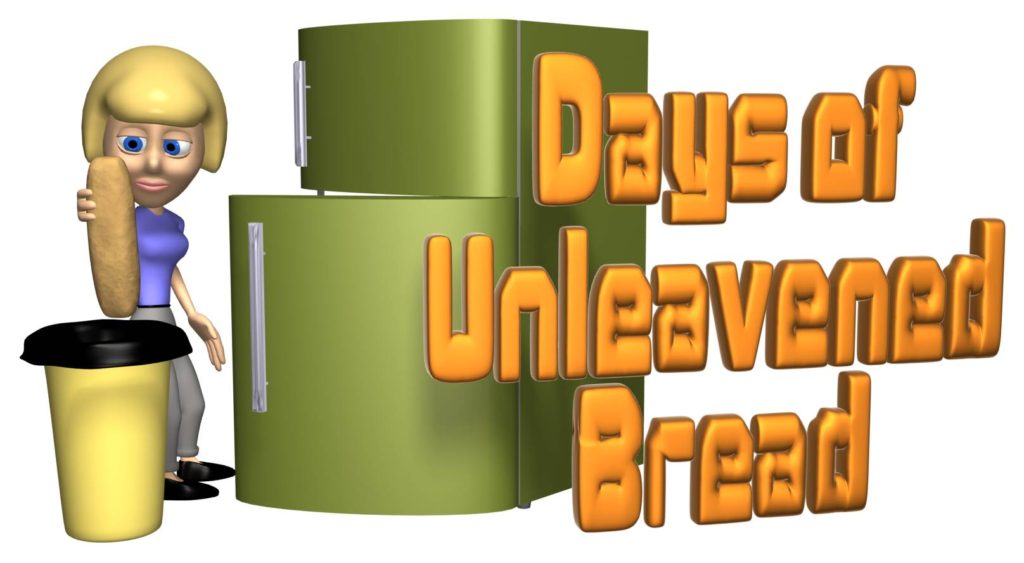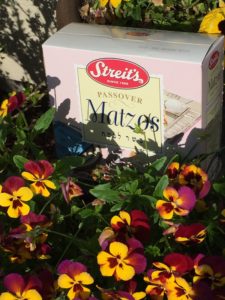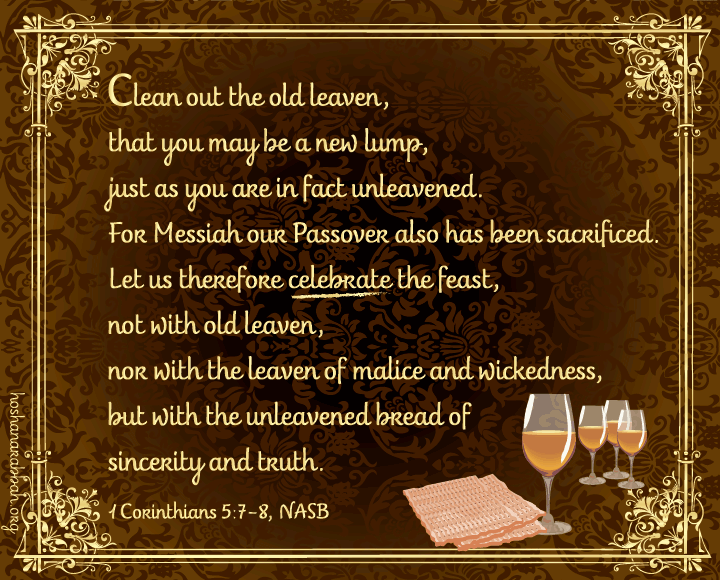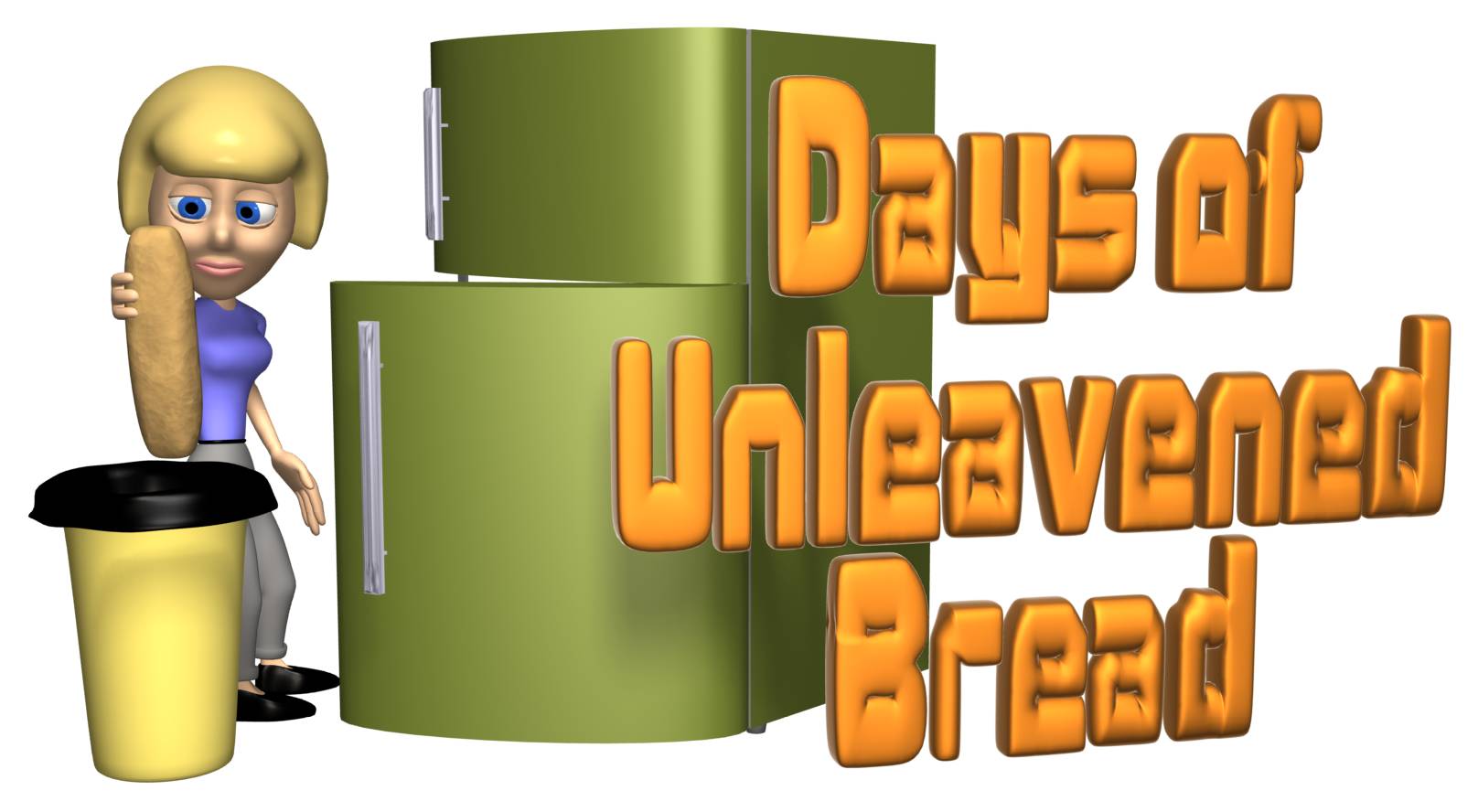
In 1 Corinthians 5 Paul the apostle of Yeshua the Messiah instructs the early Jewish and non-Jewish believers about the spiritual ramifications and significance of the Passover and the biblical Feast of Unleavened Bread. Then in verse eight, he assertively declares, “Let us keep the feast not with the old leaven of malice and wickedness, but with the unleavened bread of sincerity and truth.”
You who call yourselves Christians and who don’t celebrate the biblical feasts including the Feast of Unleavened Bread, what about this command do YOU not understand? How can anyone declare that the YHVH’s biblical feasts were done away with, or were for the Jews only, when the apostle in this letter is addressing the non-Jews as well? How can we justify substituting non-biblical holidays such as Christmas and Easter for YHVH biblical holidays and call ourselves Bible believers and followers and imitators of Yeshua and the early book of Acts church? These are serious questions that many of us need to ask ourselves if we’re serious about our faith walk before YHVH Elohim and Yeshua the Messiah.
1 Corinthians 5:6, Purge out. The greater context of this passage is about putting sin out of our life (which is the temple of YHVH’s Holy Spirit, 1 Cor 3:16–17), which collectively form the spiritual body, church or the greater temple of Yeshua’s spiritual body (John 2:21). Therefore, sin that defiles the temple of Elohim must be put out of the church. In this letter to the Corinthians, Paul is especially concerned about the sin of sexual immorality that the church in Coringh had allowed to come into its midsts (1 Cor 5:1ff). From the context of this passage in light of Paul’s discussion about Passover and the Feast of Unleavened Bread, it would appear that he wrote this letter just prior to the spring festivals (1 Cor 5:6–8). He is urging the church to remove the leavening of sin from its midsts prior to keeping the Feast of Unleavened Bread, which he, by the way, urges the Corinthian believers to do. In fact, Paul’s admonition to “keep the Feast [of Unleavened Bread]” in verse eight, is the strongest imperative command in the Testimony of Yeshua (or NT) to keep the biblical festivals, and from this it’s evidence that in the mind of the apostle the biblical festivals were still relevant to Yeshua’s followers well past the middle of the first century, which means they’re relevant to the saints of today as well.
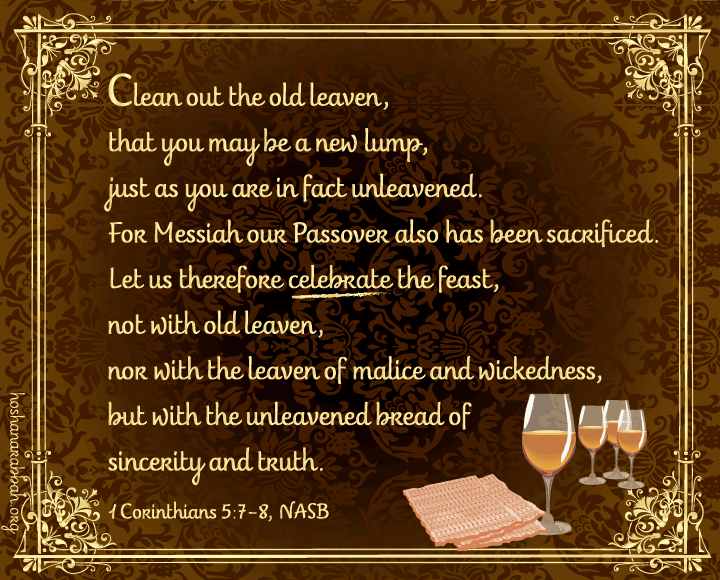
In his admonition to the Corinthian believers, it’s possible that Paul had in mind two examples in the Tanakh where spiritual revivals occurred after Hezekiah and Josiah cleansed the temple in Jerusalem of the filth of idolatry in preparation for Passover. Similarly, Ezra finished completion of the rebuilt temple in time to celebrate Passover (Ezra 6). These examples teach us that YHVH commands us to cleanse or deleaven our spiritual temples (individually and collectively) of sin annually in preparation for celebrating Passover and the Feast of Unleavened Bread. This spiritual spring house cleaning at the beginning of the biblical new year sets the tone spiritually for the rest of the year to go forward in a sin-free state.
1 Corinthians 5:7, Messiah our Passover. In the Bible, the term Passover refers to both the appointed time or moed and to the sacrifice that was made on that day.
1 Corinthians 5:8, Let us keep/observe the feast. This verse proves several things. First that Paul (a Jewish believer) kept the biblical feasts, that non-Jewish believers kept the feasts, and that all believers could keep the feasts outside of Jerusalem.
Continue reading


